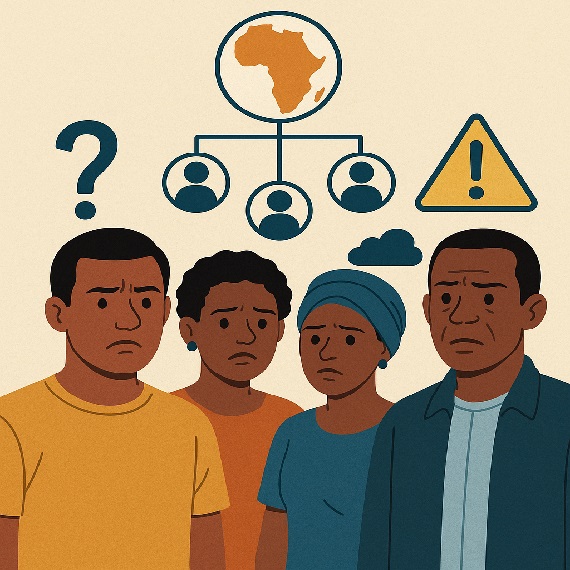
Challenges to Recruitment in Network Marketing in Africa
Challenges to Recruitment in Network Marketing in Africa. Network marketing, also known as multi-level marketing (MLM), has been gaining traction across Africa as an alternative form of entrepreneurship. Offering flexible working hours, relatively low start-up capital, and potential for financial freedom, it appeals to many people seeking economic empowerment. However, despite these apparent advantages, network marketing companies face significant challenges in recruiting new distributors across various African countries. These challenges are complex and interconnected, arising from socioeconomic realities, cultural perceptions, technological barriers, and institutional frameworks.
This chapter explores the major obstacles to recruitment in the network marketing sector in Africa. It categorizes the challenges into structural, economic, social, regulatory, and psychological domains, while providing insights into potential solutions that could foster growth and sustainability in this industry.
1. Economic Barriers
1.1 Limited Disposable Income
A large percentage of the African population lives below the poverty line. In many cases, individuals struggle to meet their basic needs, leaving little or no disposable income to invest in startup kits or products required to join network marketing programs. This economic strain discourages potential recruits, especially when they perceive the financial commitment as risky or unsustainable.
1.2 High Unemployment and Informal Economies
While high unemployment should ideally drive people toward alternative income opportunities like MLM, the dominance of informal economies means people often rely on day-to-day earnings. These income models do not allow for speculative investment in marketing products or recruiting others, which is essential for growth in network marketing.
1.3 Limited Access to Financial Services
In many African countries, access to banking services remains limited, especially in rural areas. Network marketing systems typically require online transactions, credit card payments, or bank transfers—facilities that many potential recruits do not have. This creates a significant bottleneck in the recruitment process.
2. Technological and Infrastructural Challenges
2.1 Poor Internet Penetration
Recruitment in modern network marketing increasingly relies on digital platforms. Webinars, social media campaigns, and online marketing strategies require stable internet connections. Unfortunately, many African regions suffer from poor internet infrastructure, which hinders the digital training, communication, and outreach needed to recruit effectively.
2.2 Limited Access to Devices
Smartphones, laptops, and other digital tools essential for running a network marketing business are still considered luxury items in some areas. The lack of access to these tools excludes a significant portion of the population from participating in modern MLM models.
3. Cultural and Social Perceptions
3.1 Mistrust Toward MLM Models
Network marketing is often confused with pyramid or Ponzi schemes, which have defrauded many people across Africa. This confusion fosters skepticism and mistrust, making it difficult for recruiters to convince potential participants of the legitimacy and sustainability of MLM businesses.
3.2 Social Stigma
In some African cultures, employment is still viewed through a traditional lens, with formal jobs being valued more highly than entrepreneurial ventures like network marketing. Recruits may face ridicule or discouragement from family and peers, leading to social pressure that dissuades them from joining or remaining in MLM ventures.
3.3 Gender and Age Dynamics
In certain societies, women and young people are less empowered to make independent financial decisions. This restricts their ability to participate fully in network marketing, especially if cultural norms limit their mobility, access to money, or decision-making authority.
4. Legal and Regulatory Challenges
4.1 Weak Regulatory Frameworks
Many African countries lack well-defined laws that differentiate legal MLMs from illegal pyramid schemes. The absence of regulatory clarity causes confusion among the public and increases the risk of exploitation. It also affects the credibility of legitimate companies trying to operate transparently.
4.2 Cross-Border Legal Complexities
Due to the international nature of many MLM companies, legal frameworks often clash between countries. This complicates the recruitment of distributors who may operate in multiple jurisdictions, leading to compliance difficulties and reduced confidence among potential recruits.
5. Operational and Structural Limitations
5.1 High Attrition Rates
Even when individuals join a network marketing business, many do not stay long. The promise of quick income often leads to unrealistic expectations. When these are not met, people leave the business, creating instability in the network and making recruitment appear unsustainable to outsiders.
5.2 Poor Training and Support Systems
Recruitment alone is not enough—retention depends on adequate training and support. Many MLM leaders fail to invest in mentoring new recruits, leading to disillusionment and eventual dropout. This weakens the entire structure and makes new prospects more hesitant to join.
5.3 Language and Literacy Barriers
Africa’s linguistic diversity and varying levels of literacy present unique challenges. Many network marketing materials are in English or French, limiting access for non-literate or non-fluent populations. Without localized content, it becomes hard to recruit and train individuals effectively.
6. Psychological and Motivational Factors
6.1 Fear of Rejection
Recruiting others involves pitching the business opportunity repeatedly, often facing skepticism or outright rejection. For many individuals, especially those untrained in sales, this is a daunting prospect that can discourage them from fully engaging in recruitment.
6.2 Low Self-Confidence and Entrepreneurial Readiness
Entrepreneurship requires a certain mindset—resilience, confidence, and vision. However, years of unemployment, poverty, and educational limitations can erode confidence in one’s ability to succeed. Potential recruits may not believe they have what it takes to thrive in the MLM space.
6.3 Misaligned Expectations
Many recruits join network marketing with the hope of quick wealth due to the way the opportunity is presented. When reality does not match expectations, it creates disappointment, and word-of-mouth negativity spreads, making recruitment even more difficult.
Conclusion and Recommendations
Recruitment in network marketing in Africa is fraught with multifaceted challenges, ranging from economic hardships and cultural resistance to infrastructural inadequacies and regulatory ambiguities. For network marketing companies to thrive in Africa, they must adapt their strategies to local realities.
Recommendations include:
-
Localizing content and training materials for different languages and literacy levels.
-
Partnering with mobile banking solutions to overcome financial access barriers.
-
Offering micro-investment models to reduce the financial burden on new recruits.
-
Advocating for clearer regulatory frameworks to build public trust.
-
Investing in education and ongoing mentorship to increase retention.
A deeper understanding of these challenges and a commitment to innovation and cultural sensitivity will help unlock the vast potential of Africa’s entrepreneurial population.
References
-
Chigona, W., Beukes, D., Vally, J., & Tanner, M. (2009).
Can mobile internet help alleviate social exclusion in developing countries?
The Electronic Journal of Information Systems in Developing Countries, 36(1), 1–16.
[https://doi.org/10.1002/j.1681-4835.2009.tb00231.x]
– Discusses how limited access to mobile internet affects entrepreneurship and inclusion. -
Adegbite, O., Ilori, M. O., & Irefin, I. A. (2017).
Barriers to entrepreneurship and business growth in sub-Saharan Africa: The role of institutional factors.
African Journal of Economic and Management Studies, 8(3), 314–331.
[https://doi.org/10.1108/AJEMS-03-2017-0056]
– Explores how weak regulatory frameworks and socio-economic challenges hinder entrepreneurial efforts. -
Akinwale, Y. O., & Dada, A. E. (2019).
Network marketing business in Nigeria: The good, the bad, and the ugly.
Journal of Business and African Economy, 5(2), 45–59.
– Focuses on public perception and structural problems in MLM operations in Africa. -
Muriithi, S. (2017).
African small and medium enterprises (SMEs): Contributions, challenges and solutions.
European Journal of Research and Reflection in Management Sciences, 5(1), 36–48.
– Highlights how access to finance, technology, and training limit SME and MLM growth. -
Nwagbara, U. (2019).
Entrepreneurship and youth unemployment in sub-Saharan Africa: The role of mindset training.
World Journal of Entrepreneurship, Management and Sustainable Development, 15(1), 48–61.
[https://doi.org/10.1108/WJEMSD-11-2018-0095]
– Provides insight into psychological and cultural barriers to entrepreneurial adoption.







